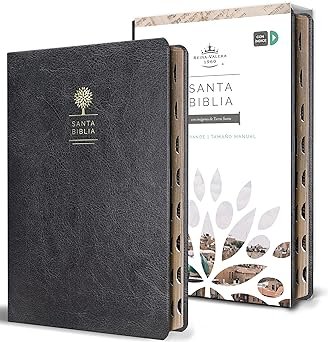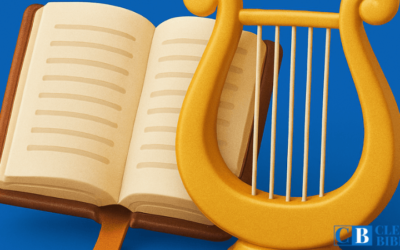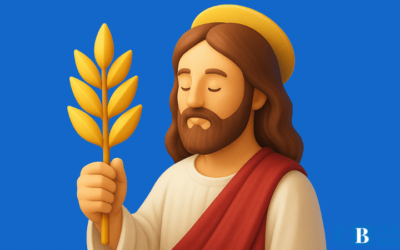Most scholars consider that the The book of Job is the oldest for its archaic language…
What if the first book written in the Bible isn't the first one that appears?
Many believe that Genesis is the oldest text simply because it opens the pages of the Bible.
But what if I told you that another book, filled with poetry, profound questions, and a heartbreaking story, predates it?
What you are about to discover could transform the way you read all of Scripture.
Introduction to the oldest book of the Bible
To understand the value of the oldest text in the Bible, it is essential to explore its origin, purpose, and the impact it has had throughout human spiritual history.
Here's a detailed introduction to help you dive into this fascinating topic:
Have you ever wondered what the oldest text in the entire Bible is?
Many people assume that Genesis is the first book written simply because it appears first in the biblical order.
However, the reality is much deeper and more surprising.
The oldest book, according to various studies, is not Genesis, but another text full of wisdom and emotional depth: the Book of Job.
Why knowing our origins connects us to the roots of faith
Exploring the first book written allows us to gain insight into the experience of the first believers.
Furthermore, it connects us with the oldest existential questions humanity has ever asked: suffering, divine justice, and the purpose of life.
Understanding this context invites us to value God's progressive revelation through the Scriptures.
What the oldest book reveals about God and humanity
The message of the oldest book is relevant not only because of its antiquity, but also because of the universality of its themes.
Job, for example, is not simply a story of loss and redemption, but a profound reflection of the human soul in the face of adversity.
Through its pages, we learn that faith is not based solely on the blessings received, but on constant trust in God's sovereignty.
Are you ready to discover why the Book of Job might be the oldest and most revealing text in the Bible?
What do we mean by “the oldest book of the Bible”?
To understand which is the true oldest book of the Bible, it is necessary to distinguish between several key concepts that are often confused.
Here we explore their differences and the reasons why one book may be considered older than another, even if it is not first in the biblical order.
Difference between canonical order and chronological order
The canonical order is the one that presents the Bible as we know it today.
It is a theological and theological arrangement, not a chronological one.
For example, the book of Genesis appears first because it recounts the beginning of creation, but that does not mean it was the first to be written.
The chronological order, on the other hand, is based on when each book was written.
This approach analyzes literary styles, vocabulary, historical context, and cultural references to determine the age of a text.
In this sense, several studies suggest that the Book of Job was written before Genesis, even centuries before Moses wrote the first five books of the Pentateuch.
Older in writing or content?
A book may contain very old stories, but that doesn't mean its writing is also very old.
For example, Genesis narrates events from the creation of the world, making it the book with the oldest content.
But these stories were passed down orally for generations before being written down.
Job, on the other hand, appears to have been written in a single piece of literature.
Although it does not narrate the beginning of the world, its structure, language, and context reflect an antiquity that many experts place even before Abraham.
Therefore, when we talk about the oldest book, we must differentiate whether we are referring to the oldest content or the oldest writing.
The cultural and historical context of the Ancient Near East
To understand the antiquity of the biblical books, it is key to understand the setting of the Ancient Near East.
Mesopotamian, Egyptian, and Canaanite cultures already had advanced literature centuries before the birth of the people of Israel.
These peoples influenced the literary forms, genres, and symbolism we find in the early biblical books.
The Book of Job, due to its wisdom style and poetic structure, resembles wisdom texts such as the Sumerian proverbs and the Akkadian epics.
This suggests that Job was written at an early stage in Hebrew history, in an environment where suffering, justice, and theology were discussed in poetic and philosophical terms.
This context helps to place Job as a book of great antiquity, predating many formal structures of Judaism.
Job: the oldest book according to most scholars
Among the many books that make up the Bible, Job stands out as one of the oldest according to most scholars.
This is based on linguistic, thematic, and historical criteria that allow its writing to be placed in very remote times, even before the establishment of Israel as a nation.
Why is the book of Job considered the oldest?
Job does not mention key events such as the Law of Moses, the covenant with Abraham, or the story of the Exodus.
This suggests that it was written at a time before these pivotal events for the Hebrew people.
Furthermore, Job's cultural context reflects a patriarchal social structure, with wealth measured in livestock and servants, which coincides with times before the Israelite monarchy.
The absence of references to Jewish religious institutions, such as the Temple or the Levitical priesthood, reinforces this antiquity.
Linguistic and stylistic characteristics that demonstrate this
The Hebrew used in Job is different from that of other Old Testament books.
It includes archaic words, unusual poetic expressions, and unique terms not found in any other biblical book.
Furthermore, much of the text is written in the form of parallel Hebrew poetry, a very ancient style also used in proverbs and ancestral songs.
This use of elevated poetry suggests a remote origin and a strong influence from Mesopotamian and Edomite cultures.
It has even been proposed that the original author of Job might not have been Hebrew, but part of an older tradition later integrated into the biblical canon for its spiritual depth.
Universal themes that transcend time
Job addresses existential issues that are still relevant today:
Does the suffering of the innocent make sense?
Can human beings question divine justice?
Is it possible to maintain faith when everything is lost?
These themes do not depend on a specific culture or era.
Rather, they reveal a profound and universal reflection on the human condition in the face of pain and the apparent absence of God.
The philosophical and spiritual richness of Job has made it a text of continuous study by theologians, psychologists, philosophers and writers of all times.
Its relevance transcends religious and geographical boundaries.
Who was Job and in what era did he live?
The figure of Job has aroused interest for centuries, not only for his story, but for what he represents on the spiritual and human level.
Studying its identity and era allows us to better understand the book's eternal message.
Theories about Job's life: real or symbolic?
Some consider Job to have been a real historical figure, a righteous man who lived in ancient times in the region of Uz.
This view is supported by specific mentions of his name and family.
Others think that Job is a symbolic character, created to represent the human struggle with pain and doubt.
From this perspective, his story would be an extended parable with a didactic and theological purpose rather than a biographical one.
In both cases, the book's teachings do not lose value, since its spiritual principles remain solid, regardless of whether Job was a real person or a literary figure.
Chronological and geographical clues of the story
The book places Job in “the land of Uz,” a region that some place southeast of Canaan, possibly in Edom or near the Arabian Desert.
This semi-arid environment matches the description of his life as a nomadic cattle rancher and patriarch.
Furthermore, references to the Sabeans and Chaldeans, peoples known in ancient times for their raids and trade, allow us to date their history to around the second millennium BC.
This places him in a time similar to that of Abraham, or even earlier.
The patriarchal lifestyle, the type of wealth he possessed (camels, oxen, servants), and the type of sacrifices he performed reinforce the idea that he lived in a time before the Mosaic Law.
The eternal message behind the suffering of a righteous man
Job represents the righteous person who suffers without having done wrong.
His story challenges the theology of immediate retribution, where it was believed that the righteous prosper and the wicked are punished.
Through his suffering, Job demonstrates that authentic faith does not depend on material blessings, but on a sincere relationship with God.
His integrity, even in the midst of total loss, makes him a model of spiritual perseverance.
This message is especially relevant today, when many face trials without clear answers.
Job reminds us that true faith stands firm, even in silence and darkness.
Other ancient books according to textual criticism
Although Job is considered by many to be the oldest book in the Bible, there are other texts within the biblical canon that contain sections or fragments with a high degree of antiquity.
These passages have been identified by textual criticism as poetic or narrative pieces that predate the complete writing of the books in which they are found.
Genesis: Possible compilation of even older oral traditions
The book of Genesis, although written centuries after Job, contains stories that were passed down orally for generations.
Stories such as the creation, the flood, and the Tower of Babel have parallels with very ancient Mesopotamian myths, such as the Epic of Gilgamesh.
This suggests that the writers of Genesis collected and reinterpreted ancient traditions from the theological perspective of the Hebrew people.
Therefore, although the final version of Genesis was written later, the content narrated may come from sources even older than the Book of Job itself.
The structure of Genesis also reflects divisions called "toledot" or genealogies, which indicates an effort to preserve lineages and family stories from ancient times.
The Song of Deborah and the Song of Moses: early poetic texts
The Song of Deborah, found in Judges 5, is considered by scholars to be one of the oldest poetic texts in the Old Testament.
It describes an Israeli military victory and is valued for its archaic style and ancient poetic language.
Similarly, the Song of Moses in Exodus 15 celebrates the liberation of the people of Israel after crossing the Red Sea.
Both texts reflect very ancient lyrical structures, probably composed shortly after the events described, and transmitted orally before being written down.
These songs, like Job, employ poetic parallelism, strong metaphors, and symbolic language, reinforcing their ancestral character.
Ancient psalms attributed to Moses and other pre-monarchical leaders
Psalm 90, attributed to Moses, is one of the most obvious examples of ancient poetry within the book of Psalms.
Its reflective tone, its focus on the eternity of God and human fragility connect it to an ancient and profound worldview.
Other psalms that may have pre-monarchical origins, that is, prior to the establishment of the monarchy in Israel, reflect primitive communal experiences and trust in God in rural and nomadic contexts.
These hymns may have been composed by spiritual leaders of the people before there was a centralized temple or established priestly system.
Its antiquity lies not in the date of the Book of Psalms as a compilation, but in the dating of some of its individual contents.
What does the oldest book reveal to us about our relationship with God?
The oldest book in the Bible not only offers ancient wisdom, but also reveals how God and his relationship with human beings were understood in the most ancient times.
These initial theological aspects are the basis for many doctrines developed later.
The early vision of human suffering
Job shows that suffering is not always linked to punishment for sin.
From the very first verses, it is suggested that a just man can suffer for no apparent reason, which challenges the traditional idea of immediate retributive justice.
This approach opens up a more complex theology of pain, where affliction does not always have a clear human explanation, and where space for faith opens up even without answers.
Job does not deny his pain, but neither does he renounce his faith, teaching that suffering can coexist with hope.
Divine sovereignty in times of uncertainty
God appears in the book of Job as an absolutely sovereign being, who does not need to justify himself before men.
God's final speech from the whirlwind highlights his creative power, his unattainable wisdom, and his absolute dominion over all creation.
This portrait of God invites us to trust not through understanding, but through recognition of his transcendent nature.
The message is clear: not everything can be understood, but everything can be entrusted to a God who is above our circumstances.
Integrity as the foundation of faith
Job is presented as a man of integrity, upright, who fears God and shuns evil.
Your faith doesn't depend on your possessions, your health, or your family, but on your unwavering commitment to God.
History shows that true faith is based on integrity, not profit.
This value is timeless and remains one of the fundamental pillars of a strong relationship with God, even in the midst of the deepest crises.
Influence of the Book of Job on Literature and Theology
The Book of Job has left a profound mark not only on religious tradition, but also on culture, philosophy, and literature throughout the centuries.
Its impact has transcended the biblical realm, inspiring universal reflections on faith, suffering, and justice.
References to Job in the New Testament
The New Testament refers to Job as an example of patience and perseverance.
In James 5:11 it says, “You have heard of the patience of Job, and you have seen the end which the Lord appointed for him.”
This reinforces the image of Job as a model of integrity in the face of suffering, even in the new Christian community.
Furthermore, the themes addressed in Job—such as faith in the midst of pain, the suffering of the innocent, and the silence of God—are reflected in the life and teachings of Jesus Christ.
Christ himself, as a righteous sufferer, is a deeper echo of the paradigm presented by Job.
Impact on classical and contemporary writers
Authors such as Dante, Shakespeare, Goethe, Dostoyevsky and Elie Wiesel have mentioned or been inspired by the character of Job.
Shakespeare, for example, refers to Job in several of his plays as a symbol of noble affliction.
In modernity, existentialist thinkers such as Camus and Kierkegaard have reflected on human suffering and the apparent silence of God, taking Job as a starting point.
Even in secular literature, Job represents the deepest human question: Why does evil and pain exist?
Its relevance in Jewish and Christian thought
In Jewish tradition, Job is considered an example of emunah (faith) that transcends human logic.
His story is studied as part of the Tanakh in the festivals of suffering and reflection.
In Christianity, he is seen as a harbinger of redemptive suffering, and as a figure pointing to the future full revelation of God's justice in Christ.
Job is also a central piece in the theology of providence, of innocent suffering, and of hope in the midst of pain.
His message continues to be taught in sermons, Bible classes, and devotionals as a living guide for facing trials with spiritual fortitude.
Practical applications of Job's message today
The book of Job is not just a literary or theological work.
His teachings have direct and powerful application in the daily lives of millions of people facing crisis, pain, or uncertainty.
Faith in the midst of loss and pain
Job lost his possessions, his family, his health and the respect of his surroundings.
Still, he did not curse God or abandon his faith.
This attitude challenges the modern believer to maintain his trust in God even when everything seems to be falling apart.
The message is clear: true faith does not depend on circumstances.
It is in adversity that the authenticity of our relationship with God is tested.
Job teaches that even when we don't understand, we can still trust.
How to Respond to God's Silence
One of the most striking features of the book is the apparent divine silence.
Job cries out and receives no immediate response, reflecting a common spiritual experience in times of trial.
This silence does not indicate absence, but rather a space of testing, growth, and spiritual maturity.
Job teaches us that it is permissible to cry, ask questions, and even lament, without losing respect or faith.
In the midst of silence, Job's perseverance becomes an act of worship.
This lesson is vital for those who pray today without visible answers.
Current examples of people living with integrity like Job
Throughout the world there are people who, like Job, face terminal illnesses, economic crises, family losses, or persecution, yet remain faithful to their principles and to God.
Testimonies from persecuted Christians, mothers who refuse to renounce their faith after losing a child, or businessmen who refuse bribes despite the consequences are living examples of the spirit of Job.
These people demonstrate that integrity and faith are not just old-fashioned ideals, but possible and present-day paths.
The story of Job lives on in those who choose to honor God above all circumstances.
How to read the oldest book in depth?
The Book of Job is not an easy read, but its spiritual, literary, and theological richness rewards the attentive reader.
Approaching it with reverence, patience, and reflection is essential to understanding its many layers of meaning.
Tips for a reflective reading of the book of Job
Read in a quiet environment:
This book requires concentration and spiritual openness.
Find a distraction-free place to meditate calmly on each chapter.
Stop at the dialogues:
Don't miss the speeches of Eliphaz, Bildad, Zophar, and Elihu.
Although not all are right, their words reveal human thoughts about God, suffering, and justice.
Interpret with discernment:
Remember that not all statements in the book are approved by God.
In the end, God corrects Job's friends for not speaking correctly about Him.
Meditate on the structure:
Job begins in prose, moves into long poetic chapters, and ends again in prose.
This design is not accidental; it highlights the contrast between human reality and divine response.
Recommended Bible versions for study
Choosing a good translation can make all the difference when reading Job.
Some versions recommended for their fidelity and clarity are:
- Bible of the Americas (LBLA): Precise in the original Hebrew terms.
- Reina-Valera 1960: Traditional and widely used in Hispanic churches, although with an older language.
- New International Version (NIV): Modern, accessible and clear, ideal for new readers.
Comparing versions can enrich reading and offer new perspectives on complex passages.
How to Use Devotionals and Bible Study Resources
Uses thematic devotionals on suffering, faith, and the sovereignty of God.
Many of them include daily reflections based on the book of Job.
You can also look for specialized Bible commentaries, which explain the historical background, the meaning of key words, and theological connections.
Some resources even offer study group guides, discussion questions, and practical applications.
Apps like YouVersion, Logos, and BibleGateway offer guided reading plans for Job with additional resources.
Combining the reading of the biblical text with these supports will allow you to have a deeper and more transformative understanding.
📚 Book recommendations to delve deeper
For those who wish to go beyond the biblical text and explore Job's message from different perspectives, these books available on Amazon are excellent resources.
Each offers valuable teachings and practical applications for spiritual life.
“Suffering and the Sovereignty of God” – John Piper
This book offers a profound reflection on how pain and divine sovereignty can coexist.
Piper clearly explains that suffering is not beyond God's control and that, even in the midst of pain, His purpose remains.
It is ideal for those seeking a solid theological foundation in the face of trials.
“Job’s Message” – Derek Kidner
Kidner analyzes the book of Job with a unique blend of scholarship and devotion.
Provides a step-by-step guide through the chapters, highlighting the literary structure and main themes of the text.
Perfect for Bible students and teachers who want to teach Job clearly and faithfully.
“Job: A Man of Heroic Resilience” – Charles Swindoll
Swindoll presents Job as a spiritual hero, highlighting his human qualities and unwavering faith.
The book is written in an accessible and motivating style, ideal for readers seeking personal inspiration and tools to endure adversity.
These readings complement Bible study with profound teachings, contemporary examples, and practical wisdom for living with faith in any circumstance.
Resources for personal and group study
The Book of Job offers multiple possibilities for in-depth study, both individually and in a community.
With the right resources, each reader can draw profound lessons, share experiences, and strengthen their faith alongside others.
Study guides for youth, adults, and church leaders
There are guides designed specifically for each age group and level of spiritual maturity.
For young people, guides often include dynamics, open-ended questions, and practical activities that help connect Job's themes to their own struggles.
For adults, the guides offer more detailed discussions of the theology of suffering, God's sovereignty, and perseverance.
They include chapter summaries, reflection questions, and suggestions for daily application.
Church leaders can use manuals that provide sermon ideas, topic outlines, group discussions, and downloadable materials.
These resources encourage dialogue and spiritual growth throughout the congregation.
Mobile apps and online platforms to follow the book
Several apps offer devotional reading plans for Job, with verse-by-verse commentary and space for note-taking.
Among the most recommended are:
- YouVersion (Bible App): allows you to read, compare versions and follow thematic plans.
- Logos Bible Software: Ideal for in-depth study with access to commentaries, Hebrew lexicons, and analysis tools.
- BibleProject.org: offers animated and explanatory videos that summarize the content and structure of Job with a visual and theological approach.
You can also join online communities on social media or Christian forums where the Book of Job is discussed and complementary resources are shared.
How to organize a Bible study focusing on Job
Choose a clear structure:
You can divide the book into thematic blocks (introduction, talks, God's response, restoration) and assign one per session.
Set goals per meeting:
Define whether the purpose will be to understand the text, apply a lesson, or discuss a key topic such as suffering or faith.
Incorporate open questions:
Invite participants to share how they would react in Job's position or what they think about their friends' speeches.
End each session with a guided prayer:
Ask for wisdom to interpret correctly, and faith to trust like Job, even when immediate answers are not available.
These meetings can be held in homes, churches, WhatsApp groups, or virtual platforms, and can be tailored to each community.
What do archaeologists and ancient manuscripts say?
Biblical archaeology and paleography provide important data that support the antiquity of the Book of Job.
These findings allow the narrative to be connected to real historical events, languages, and cultures of the ancient Near East.
The role of the Dead Sea Scrolls in dating
The Dead Sea Scrolls, discovered at Qumran between 1947 and 1956, contain fragments of nearly all the books of the Old Testament, including Job.
These texts, dated between the 2nd century BC and the 1st century AD, confirm that the book was already known, copied and considered important centuries before Christ.
Although the fragments of Job found are not complete, their existence at Qumran validates their authority and circulation in very ancient times.
In addition, they allow us to study textual variants and analyze how the content was transmitted and preserved.
Oldest Hebrew manuscripts containing Job
He Aleppo Codex (10th century AD) and the Leningrad Codex (1008 AD) are among the oldest complete manuscripts of the Old Testament in Hebrew.
Both contain the complete text of Job and have been the basis for most modern translations.
Earlier fragments have also been found in Greek (Septuagint), Aramaic and Syriac, demonstrating its widespread dissemination and translation from early times.
The variety of these manuscripts also allows for the comparison of textual variants and enriches the philological study of the book.
How archaeology confirms the context of the story
The cultural context of Job coincides with what has been discovered about patriarchal life in regions such as Edom, Teman, and Arabia.
References to animals such as camels and donkeys, and to groups such as the Sabeans and Chaldeans, correspond to real peoples mentioned in archaeological records.
Furthermore, the way wealth, family relationships, and religious practices such as sacrifices are described are consistent with common practices among ancient Semitic peoples.
All this supports the possibility that Job existed in a period before Moses, perhaps contemporary with the patriarchs.
These findings strengthen the credibility of the story, not as an isolated myth, but as a story embedded in a verifiable historical and cultural framework.
Little-known curiosities about the oldest book
In addition to its spiritual and literary depth, the book of Job contains unique details that distinguish it from the rest of Scripture.
These curiosities reveal fascinating aspects about its composition, symbolism and theological approach.
Did you know that Job never mentions Moses or the Law?
Throughout the entire book of Job there is no reference to Moses, the Exodus, the Ten Commandments, or the Law.
There is also no mention of the Abrahamic covenant, the tabernacle, or the Jewish festivals.
This silence is significant because it reinforces the idea that the book was written before the establishment of Judaism as a religious system.
The relationship with God is presented as direct, without priestly mediation or legal precepts.
This places Job in a time when faith was lived from a more universal perspective, prior to the Mosaic revelation.
Presence of mythical creatures such as Leviathan and Behemoth
In the final chapters of the book, God mentions two towering creatures: Behemoth and Leviathan.
These beasts have been interpreted as hippopotamuses and crocodiles, but also as symbolic representations of chaos or uncontrollable cosmic forces.
Leviathan, in particular, appears elsewhere in the Bible as a symbol of evil and the power of God's enemy.
In Job, his poetic description highlights his unparalleled power, which reinforces the divine argument about God's total sovereignty over all creatures.
These references indicate the antiquity of the text, since the use of mythological monsters was common in ancient Mesopotamian literature.
The silence of God as a narrative protagonist
One of the most powerful features of the book is God's long silence in the face of Job's pleas and questions.
For most of the story, Job cries out unanswered, while his friends offer incomplete theological explanations.
This silence is not empty, but a narrative tool that creates tension, reflection, and spiritual depth.
When God finally speaks, he does not answer Job's questions directly, but reveals his majesty through a discourse about creation.
Divine silence becomes the space where the most authentic faith is tested, and where reverence is cultivated, even without understanding.
Is Job really the oldest? Open debate
Although many scholars agree that Job is the oldest book in the Bible, there is ongoing debate about its exact date of writing.
This academic dialogue enriches the understanding of the text and its role within the biblical canon.
Contrasting positions between conservative and liberal academics
Conservative scholars often argue that Job was written before Moses, based on the archaic language and the absence of references to the Law.
They defend their early inspiration and their origin in the patriarchal era.
Some liberal scholars, however, propose that the book was written much later, during the Babylonian exile.
From this perspective, Job would be a post-exilic theological reflection on the suffering of the Jewish people.
Both positions analyze style, themes, and literary structure, but reach different conclusions according to their theological and methodological framework.
The role of oral tradition in ancient texts
Regardless of the exact date of writing, much of the content of the Book of Job may have been transmitted orally for centuries before being written down.
In ancient Semitic cultures, stories and poems were memorized and shared from generation to generation.
This explains why the language of the book is so poetic and rhythmic: it was designed to be remembered and recited.
Oral tradition was a key vehicle for preserving spiritual messages before the widespread use of writing.
Thus, Job may contain ancient teachings that predate even its written version.
What does the debate over the inspiration of Scripture teach us?
The debate over Job's antiquity reminds us that divine inspiration does not depend exclusively on a historical date.
A text can be inspired by God and, at the same time, have a complex history of transmission.
The bottom line is that the book's message has been faithfully preserved and continues to transform lives to this day.
Academic discussion can enrich our understanding, but it does not diminish the authority or spiritual value of the text.
Job, regardless of when it was written, remains a literary and theological gem that reveals the human heart… and the majesty of God.
This is only for entrepreneurs, business owners and freelancers who trust in God.
📌 Are you an entrepreneur with eternal principles?
If you feel called to undertake with values such as truth, excellence, and service, this section is for you.
Here are some tools to help you move forward without giving up your faith:
🚀 NippyLaunch.com
Launch your website, SaaS, or online store with excellence.
A platform designed for Christian entrepreneurs who want to make a difference in the digital world.
📈 CleefCompany.com
Create digital advertising campaigns with real impact.
Honest, ethical, and biblically-based marketing for businesses seeking to truly serve.
🧮 CalculatorCCH.com
More than 600 tools for entrepreneurs.
Finance, health, and business calculators for those who want to make wise decisions and manage their resources intelligently.
Frequently asked questions about the oldest book of the Bible
What is the oldest book of the Bible according to experts?
Most scholars consider the Book of Job to be the oldest because of its archaic language, patriarchal context, and lack of references to the Mosaic Law.
Who wrote the book of Job?
The authorship of Job is unknown. Some attribute it to Moses, others to an ancient sage before him. The original author was probably a scholar of great theological and literary sensitivity.
What language was it originally written in?
The Book of Job was written in Hebrew, but with many archaic expressions and unique words not found in other Old Testament books.
Why isn't it at the beginning of the Bible if it's the oldest?
The order of the biblical books is not chronological, but rather thematic and theological. Job is among the poetic books, not among the historical or legal ones.
What main teaching does the book of Job leave?
That true faith is not dependent on circumstances. Suffering can coexist with faithfulness, and God is trustworthy even when we don't understand his ways.
Is there archaeological evidence of Job or his story?
There is no direct archaeological evidence of Job as a historical figure. However, the cultural and geographical elements of the story are consistent with what is known about the ancient patriarchal environment.
What are the differences between the biblical Job and the Job of the Quran?
Both texts present Job as a righteous man who suffers, but the Quran offers a shorter version with different elements. In the Bible, the story is more detailed and theological.
What contemporary books to Job might have existed?
Wisdom texts from Mesopotamia, such as Sumerian proverbs, and poems like the Epic of Gilgamesh, are considered to be from a similar period in style and theme.
Is the book of Job literal or symbolic?
Some interpret it as a true story, others as a literary parable. In both cases, its theological and spiritual value is equally profound and relevant.
What relationship does Job have with Jesus Christ in the New Testament?
Job is cited as an example of patience and faith in the midst of trial (James 5:11). Furthermore, his image prefigures Christ as a righteous man who suffers, is misunderstood, and is ultimately vindicated.
Conclusion
The oldest book of the Bible is not just a literary relic.
It is a living guide for those facing pain, doubt, and the silence of God.
Job reminds us that even without clear answers, faith can stand firm, and that integrity shines brightest in the midst of darkness.
Have you ever felt like Job?
We would love to read your experiences or thoughts in the comments.
How has God spoken to you in the midst of silence?
Discover How the Bible Can Transform Your Life
- Bible Study – explore the teachings of the Bible and find answers to life’s challenges.
- Fundamental Beliefs – delves into the principles that have guided millions through the centuries.
- Spiritual Growth – Strengthen your faith with studies designed to bring you closer to God.

Discover How the Bible Can Transform Your Life
- Bible Study – explore the teachings of the Bible and find answers to life’s challenges.
- Fundamental Beliefs – delves into the principles that have guided millions through the centuries.
- Spiritual Growth – Strengthen your faith with studies designed to bring you closer to God.



























0 Comments